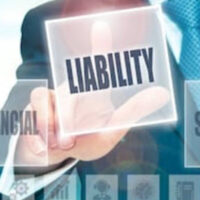Online Sellers and Businesses Can Be Liable for Defective Products

If you have an online business that sells products, you may not know that you are liable if the products you sell injure someone. Of course, that may seem obvious if you’re selling your own products—that is, products that you are making or manufacturing. But even if you’re a “middle man,” selling products made somewhere else, by someone else, you should be aware that your business has potential liability.
Strict Liability
The reason why is because of the doctrine of strict liability. Strict liability says that if someone is injured by a product, everybody in the “retail chain” can all be responsible for the person’s injuries, and for the defective product.
So, let’s say a product is made by Company A, sold to Company B, then sold to Company C, which sells the product to a consumer who is injured. All those companies—Company A, B and C—can all be held liable for the victim’s injuries, even though only one company had anything to do with actually making the product, or any ability to actually inspect it for safety.
This can seem unfair to businesses. After all, if you’re just stocking and selling a product, you had no hand in how the product was built or manufactured. For many online retailers, they may not even have the physical items in their possession—the items may be shipped from a separate company. But despite your lack of knowledge or involvement in any part of the product other than its sale, you can be held liable for the end consumer’s injuries.
Amazon Tries to Fight Strict Liability
Probably the biggest online retailer is Amazon, which recently tried, and failed, to fight this concept of strict liability.
In a recent case, an end consumer who bought a battery on Amazon was injured when the battery exploded. The consumer sued Amazon. The product was made by a third party seller, and all of the shipping, returns, and customer communication, were handled by Amazon.
A lower court held that because Amazon had no part in the manufacturing of the product it could not be held liable. But an appellate court reversed. The Court found that the realities of today’s business market, where products go from company to company before the end user ever gets it, made strict products liability, and the ability to hold every company in the chain of distribution liable, necessary.
The Court did find that Amazon promoted the product on its website, stored the product on its shelves, accepted the customer’s money and shipped the product.
As such, it wasn’t exactly a sideline participant in the transaction; its involvement in the sale of the product was significant enough to warrant liability, even though Amazon had nothing to do with the manufacture of the defective battery, and had no ability to inspect the product before it was shipped.
Call the West Palm Beach business litigation lawyers at Pike & Lustig for help making sure your business is safe, and to protect your business from liability or lawsuits–and defend your business if you ever do end up in court.
Resources:
https://www.rules
natlawreview.com/article/california-court-appeal-finds-amazon-not-shielded-liability-defective-product-sold
